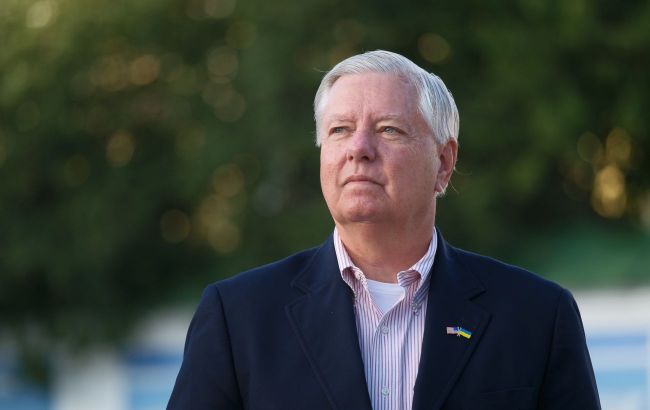Trump backs 500% tariff bill targeting Russian oil buyers, Senator Graham says
 Photo: US Republican Senator Lindsey Graham (Getty Images)
Photo: US Republican Senator Lindsey Graham (Getty Images)
US Republican Senator Lindsey Graham, in an interview with ABC News, said that Trump supports a new sanctions bill against Russia and the countries that buy its energy resources. The legislation is expected to be passed in Congress after the July recess.
During the interview, the host asked Graham whether he had convinced Trump to support the bill, which proposes a 500% tariff on buyers of Russian energy. Graham called the development "a big breakthrough" and explained what the bill is intended to do.
"If you're buying products from Russia and you're not helping Ukraine, then there's a 500 percent tariff on your products coming into the United States," the Senator said.
He also reminded that China and India purchase more than 70% of Russian oil. According to Graham, these countries are funding Russia's war machine, and that must stop.
"My bill... would allow the president to put tariffs on China, India, and other countries to get them to stop supporting Putin's war machine, to get him to the table," he said.
Graham added that Congress is expected to vote on the bill next month, after the recess ends on July 7. The Senator said he is confident Trump will sign the bill once it is passed by lawmakers.
"I think we're in good shape... But we're trying to get Putin to the table," he added.
Russian oil or massive tariffs
Back in early April, Senator Graham introduced the bill proposing severe sanctions against Russia for refusing to pursue lasting peace with Ukraine. For the first time, the bill focused not only on Moscow itself, but primarily on buyers of its key export — energy.
However, the White House had been slow to advance or support the legislation. In early June, US media reported that the Trump administration was dissatisfied with the bill. Graham was asked to significantly soften the document.
The Senate later postponed consideration of the bill until July due to rising tensions between Iran and Israel. US officials were concerned that ongoing hostilities in the Middle East could lead to a sharp increase in oil prices.


